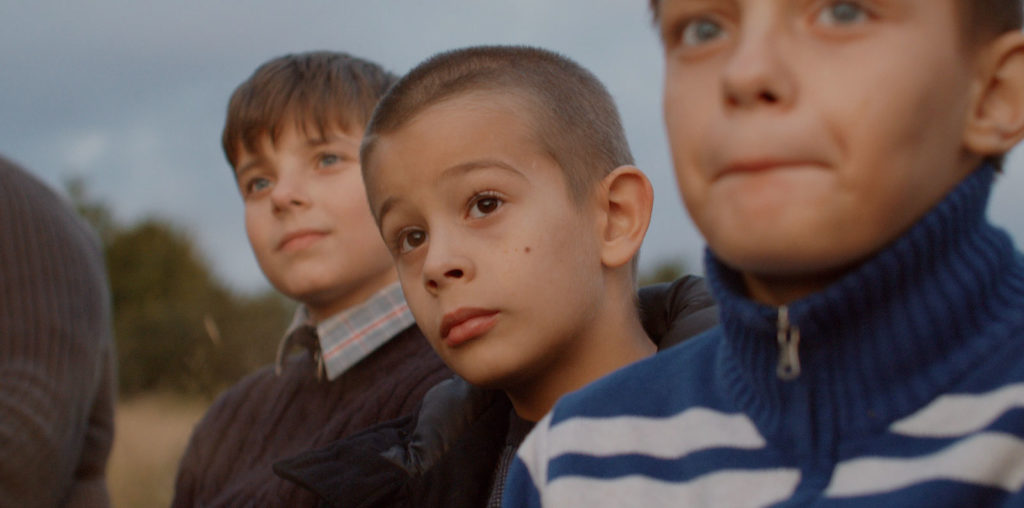
Nia DaCosta’s Little Woods is a sister drama that is affecting, sincere, and most importantly socially astute — grappling with urgent real-world issues like women’s healthcare access, the opioid epidemic, and the anxieties of living in a remote oil fracking boomtown. It’s a relatively quiet film, as interested in the sprawling fields and trash-strewn concrete lots of its Little Woods, North Dakota setting (a fictional town near the Canadian border) as it is in the ticking clock dilemmas facing its central sisters. The film marks DaCosta’s feature writing and directorial debut, and it’s one of the sharpest and most promising first films I’ve seen in some time.
Following the plight of stony-faced sisters Ollie (Tessa Thompson) and Deb (Lily James), Little Woods spins a tale of female bonds and working class desolation that’s more gripping for its rawness and intimacy than for any real plot thrills. Ollie, first seen in a nightmare sequence that culminates in her running for her life in ultra-close-up, inhabits a messy, lonely house left to her by her late adoptive mother. Ollie is immediately shrewd and independent, but vulnerability peeks through: she still spends nights in a sleeping bag on the floor of her mom’s old room. When we meet the sisters, the house is facing foreclosure by the end of the week due to late mortgage payments –– the first of a few time-sensitive predicaments framing the story.
“…selling coffee and snacks out of the back of her pickup truck while applying for more legit professional positions…”
The end of the week also happens to mark the end of Ollie’s probation, after having been caught and arrested smuggling medication and drugs over from Canada. But, for now, Ollie has scrubbed herself of her old ways, opting for odd jobs like selling coffee and snacks out of the back of her pickup truck while applying for more legit professional positions outside her bleak hometown. Ollie’s sister Deb, residing in a trailer with her young son and waitressing at a local diner, is a different story. Finding herself pregnant again — and lacking the resources to rear even her first child — Deb turns to Ollie for help, throwing a wrench in her estranged sister’s future plans.
On the surface, these characters may sound familiar, maybe even trite — a sloppy single mother on the margins, a reformed drug dealer with a heart of gold — and it’s true that, in the wrong hands, Little Woods could have veered into exoticized poverty or a hackneyed tale of decaying mores. But we’re never invited to feel sorry for the sisters. DaCosta’s lens is a lucid one, adopting Ollie’s sharp, pragmatic outlook and filtering out any potential for pity. Amidst the mess, a grounding force for the sisters is their fierce familial loyalty — an asset that comes in handy in a world where everyone’s down on luck and out for own gain and it’s not clear who, if anyone, can be trusted. “I forgot to be nervous,” Ollie says when Deb asks how she finally got caught during a border run. These are powerful women: savvy and assured and heedful of danger.
“…one of the sharpest and most promising first films I’ve seen in some time.”
This danger presents most often in the form of men. Ian, Deb’s feckless ex and father of her son, is a classic drunken deadbeat. “We can get married,” Ian says when Deb tells him of her second pregnancy, to which she responds with a sad, weary smile; she’s not fooled by empty promises. But Ian’s colleague Bill is the real bad guy, threatening Ollie with violence when she challenges his monopoly opioid ring. The only saving grace for the male race lies in Carter: Ollie’s supportive probation officer. Carter serves as a kind of father figure to Ollie, and her conversations with him are the only space in which we see more than a hint of her vulnerable, hopeful side. Both Ollie and Deb were forced to grow up quickly, we surmise — Ollie to care for their sick mother and look out for her sister, and Deb to raise her son — and in Carter Ollie finds something rare in her world: someone dependable who truly believes in her.
There is an issue with stakes at some points in the film as if Drama with a capital D were being wedged into a scene by force rather than naturally occurring in the story. But Thompson and James are too appealing to lose our attention, and DaCosta too emotionally perceptive to rely only on a thrilling plot. And anyway, with Little Woods, DaCosta offers something much more valuable and exceptional than conventional thrills: women who are alive and authentic, whom we care about and believe in.
Little Woods (2018) Written and directed by Nia DaCosta. Starring Tessa Thompson and Lily James. Little Woods screened at the 2018 Tribeca Film Festival.
Grade: B+

